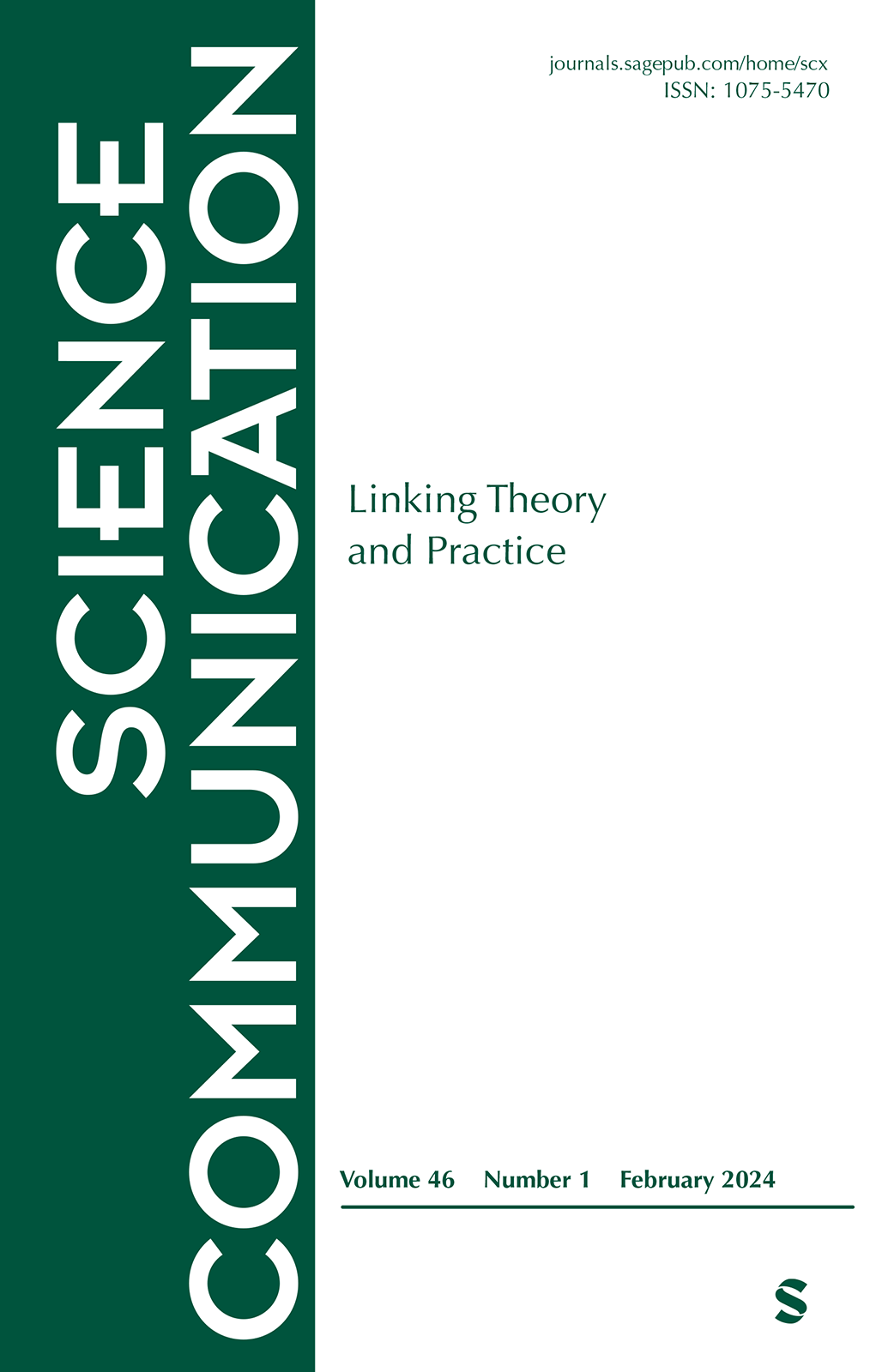媒体使用、人际交流和对人工智能的态度
IF 4.1
1区 文学
Q1 COMMUNICATION
引用次数: 3
摘要
这项研究考察了公众如何构建人工智能(AI),以及新闻使用如何预测人工智能的“思维框架”。该研究还测试了新闻使用、科幻小说观看和讨论技术是否会单独或相互影响人们对人工智能的态度。这些分析使用了一项具有全国代表性的在线小组调查的数据。受访者提到了人工智能的社会进步和潘多拉盒子框架,技术新闻使用预测提到了每一个框架。科技新闻的使用也预示着对人工智能支持的变化,而科幻小说的观看和讨论与这种变化有条件地相关。本文章由计算机程序翻译,如有差异,请以英文原文为准。
Media Use, Interpersonal Communication, and Attitudes Toward Artificial Intelligence
This study examines how members of the public frame artificial intelligence (AI) along with how news use predicts “frames in mind” for AI. The study also tests whether news use, science fiction viewing, and discussing technology influence attitudes toward AI independently and in conjunction with one another. The analyses use data from a nationally representative online panel survey. Respondents invoked social progress and Pandora’s box frames for AI, and technology news use predicted mentioning each frame. Use of technology news also predicted change in support for AI, while science fiction viewing and discussing technology were conditionally related to such change.
求助全文
通过发布文献求助,成功后即可免费获取论文全文。
去求助
来源期刊

Science Communication
COMMUNICATION-
CiteScore
13.50
自引率
4.40%
发文量
19
期刊介绍:
Science Communication is a prestigious journal that focuses on communication research. It is recognized globally for publishing top-quality manuscripts that demonstrate excellent theoretical frameworks and robust methodology. Our journal embraces a broad definition of science, encompassing not only the natural and physical sciences but also social science, technology, environment, engineering, and health. Regardless of the scientific area, effective communication is always the focal point of our investigations.
Apart from theoretical and methodological rigor, we place great emphasis on the practical implications of scientific communication. Therefore, we expect all submitted manuscripts to address the real-world applications and significance of their research, alongside theoretical considerations.
In summary, Science Communication is an internationally renowned journal dedicated to bridging the gap between science and society. By promoting effective communication in various scientific domains, we strive to engage readers with intriguing research that has tangible implications for the world around us.
 求助内容:
求助内容: 应助结果提醒方式:
应助结果提醒方式:


